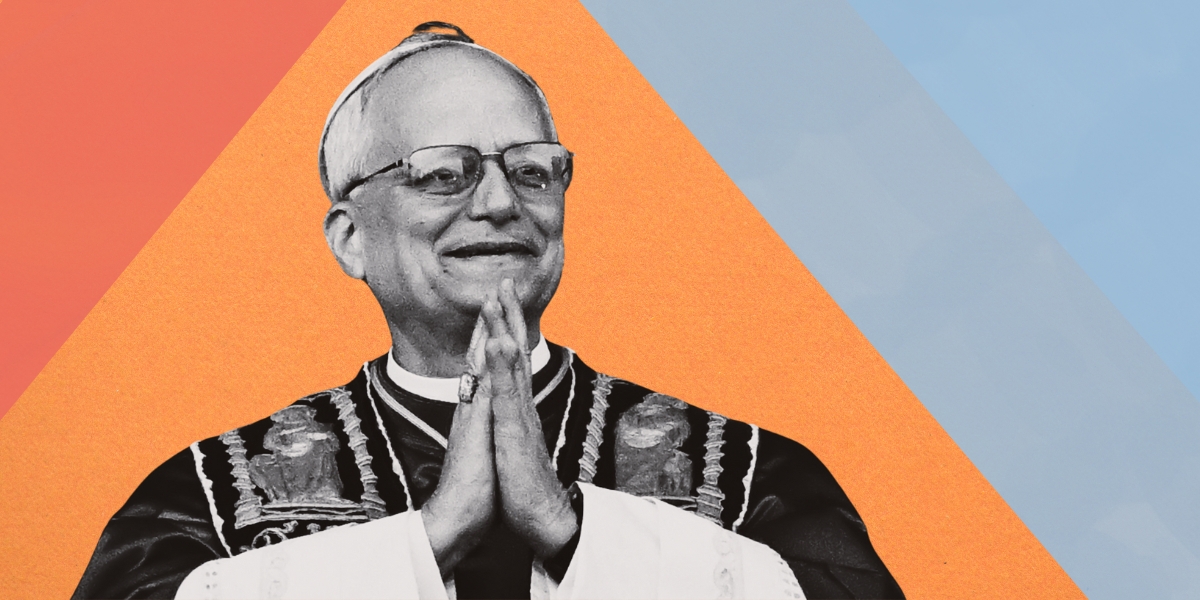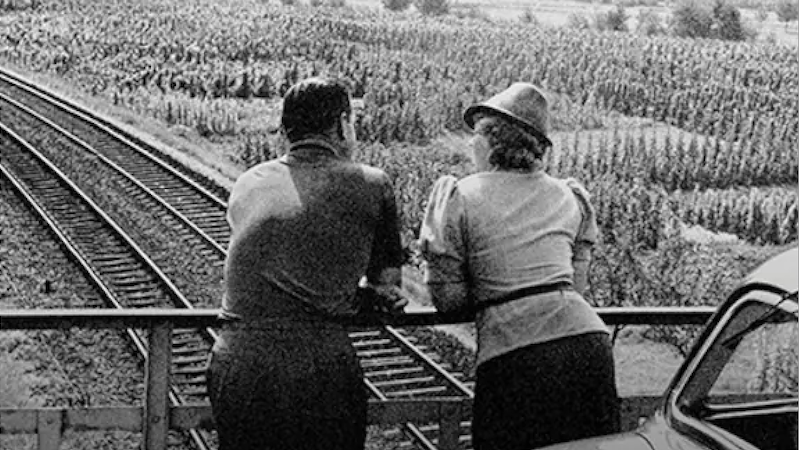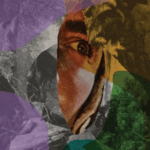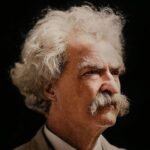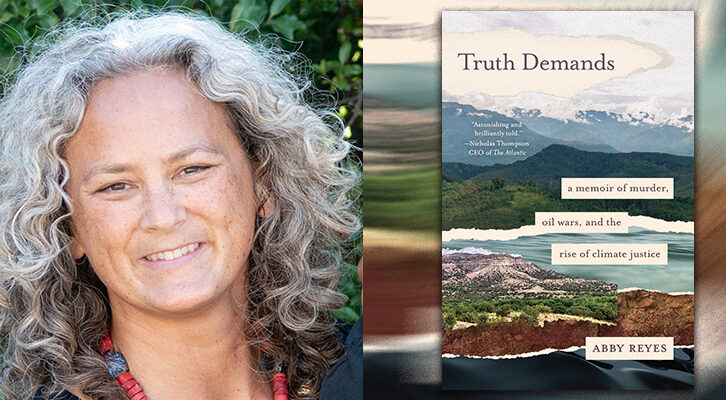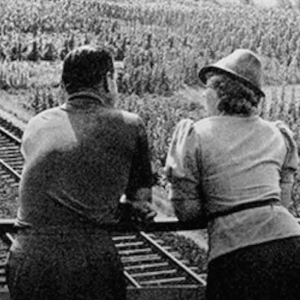You Don’t Have to Believe in God to Find Hope in Pope Leo
“A world without hope is a world on the brink. And we are teetering.”
No matter your pew, prayer mat, meditation cushion, or lack thereof, something quietly seismic just happened on Thursday in Rome. A new Pope has emerged onto the balcony of St. Peter’s Basilica, blinking into the sun, the start of a new chapter we didn’t know we needed. And while it’s tempting to dismiss papal elections as merely rituals for the devout, we’d be missing something essential—something almost electric—if we fail to notice what this moment actually offers the world at large. The arrival of this Pope, right now, in this particular crucible of history, matters far beyond the bounds of Catholicism. It’s a global cultural shift disguised in white robes.
We are not a people who currently know what to do with hope. Look around. Hope has been demoted from virtue to luxury item. It’s something we talk about with nostalgia or suspicion, something evoked in marketing slogans but rarely felt in our guts. War simmers and flares. Like, everywhere. The planet burns and floods with mounting indifference. Politicians parade hollow ideologies dressed up as solutions. The algorithm feeds us despair in increasingly addictive doses. In this context, the idea of a single person—even a pontiff—reigniting some shared spark of optimism feels quaint, even naïve.
And yet, wasn’t that precisely the mood in 2008, when a skinny kid with a funny name stepped onto the stage and told us, “Yes, we can”? Barack Obama’s election didn’t just make history—it altered the emotional weather. You could feel the barometric pressure of the world shift. He represented competence, yes. Intelligence, absolutely. But above all, he represented the possibility of renewal. Hope wasn’t a vague feeling; it became, briefly, a global sensation. We dared to believe things could change.
That’s the kind of moment the Church—and more broadly, the world—is staring into now. Because this new Pope, whoever he ultimately proves to be, isn’t stepping into a position so much as a vacuum. A vacuum of faith—not necessarily in God, but in the human project itself. The timing couldn’t be more urgent. The old Pope, however well-intentioned, was a figure of transition: kind, thoughtful, but limited in impact by age, bureaucracy, and a Church still unsure if it was ready to evolve. His resignation was more of a whisper than a roar. The world didn’t stop. The algorithm barely hiccuped.
But the installation of a new pontiff—even, or particularly, the first American Pope—has the potential to be something altogether different. Not because he will wave a wand and make injustice disappear, but because his mere presence could shift the tone of the global conversation. The Catholic Church is one of the last institutions on Earth that still stages its leadership transitions like epics. It still carries a kind of theatrical, mythic gravity that cuts through the noise. Whether or not you care about doctrine, you feel that something is happening when a new Pope steps into power.
If a flawed institution can begin to course-correct—can show vulnerability, humility, and purpose—then maybe there’s a template for all of us.And that symbolic power, right now, is worth its weight in gold. Because symbolism, when done right, becomes substance. Consider what it would mean—not just to Catholics, but to anyone watching—for this new Pope to speak plainly about the climate, about poverty, about violence, about inclusion, about doubt. Consider what it would feel like for him to acknowledge openly what so many institutions won’t: that we are all, globally, experiencing a kind of moral vertigo. That it’s not just you. That despair is not a private failing but a communal wound.
This doesn’t require dogma. It doesn’t even require belief. It just requires someone to look at the world and say, “This is not how it has to be.” And coming from someone whose job it is to actually shepherd souls, that statement—if genuine—could pierce the cynicism that so thoroughly defines our era. We’ve grown so jaded, so constantly betrayed by our leaders, that we’re desperate for a figure who simply doesn’t flinch. Someone who isn’t trying to sell us something, isn’t trying to win an election, isn’t beholden to lobbyists, and yet dares to speak to the higher parts of ourselves.
This isn’t to say the Church doesn’t have blood on its hands. It absolutely does. Its sins are well-documented and in many cases, unforgivable. But that’s part of what makes this moment so delicate and so potent. The Church’s moral authority is bruised, perhaps permanently. And yet, paradoxically, that makes its efforts to reclaim moral relevance all the more meaningful. If a flawed institution can begin to course-correct—can show vulnerability, humility, and purpose—then maybe there’s a template for all of us. If the Vatican can acknowledge pain and still preach healing, then maybe we can, too.
So yes, this is a moment. Not because of the man alone, but because of what the moment demands from the man. A Pope who merely sustains tradition will vanish into the fog of disinterest. But a Pope who dares to speak prophetically—not in the mystical sense, but in the moral one—could catalyze something rare: the rebirth of public hope. That’s not a small thing. That’s not some Hallmark card sentiment. That’s tectonic.
Because hope, real hope, isn’t about optimism or naivete. It’s about resolve. It’s about choosing to care when everything around you insists on apathy. A world without hope is a world on the brink. And we are teetering. A Pope willing to name that—not soften it, not sanitize it, but name it—could be the kind of unexpected tonic this moment calls for. Not a savior, but a signal.
And frankly, we are a people aching for signals. Not signs from heaven, necessarily, but signs from each other that we still want to try. That we haven’t given up on decency, on dignity, on progress. If this Pope can deliver even a sliver of that signal, it could have an outsized impact. Not because we all start going back to Mass, but because we might start going back to each other.
So no, you don’t have to be Catholic to care. You don’t even have to believe in God. You just have to believe that there’s still a role for moral courage in public life. And if this new Pope has the audacity to embody that, to remind us—even in passing—that the world is not yet finished, then he might end up being the rare kind of leader who doesn’t just inherit a throne, but earns a place in the collective conscience.
Because hope, at its most powerful, is contagious. And it only takes one clear voice to start a new chorus.

